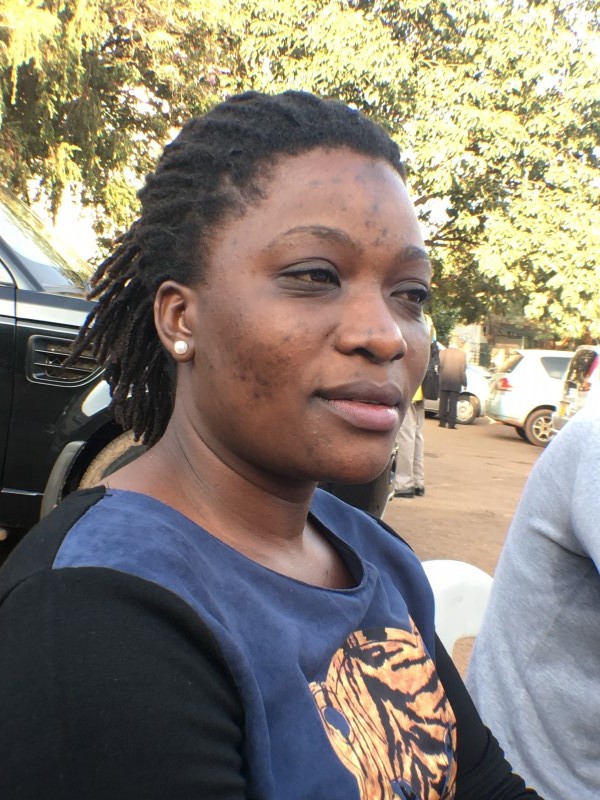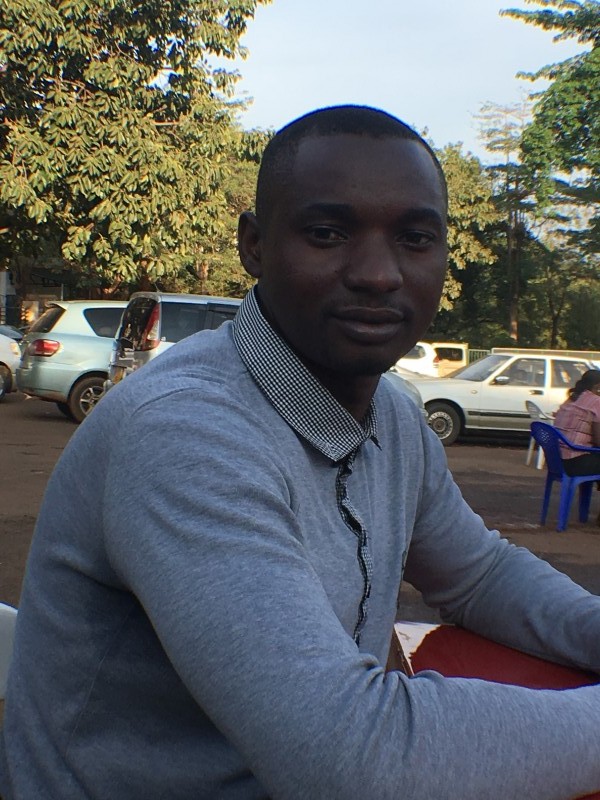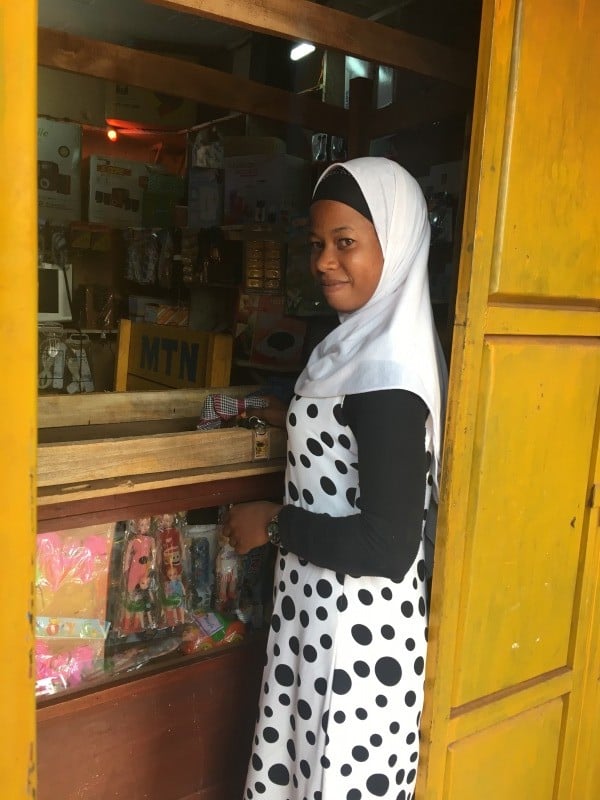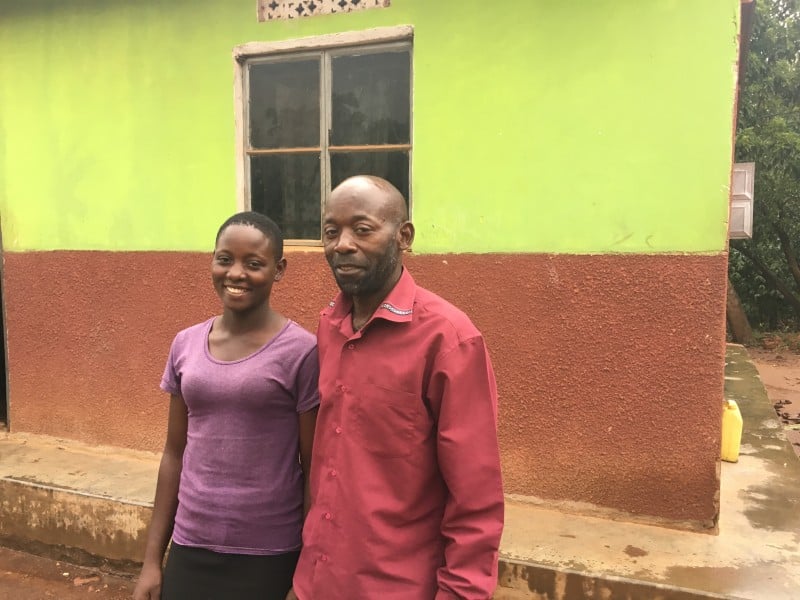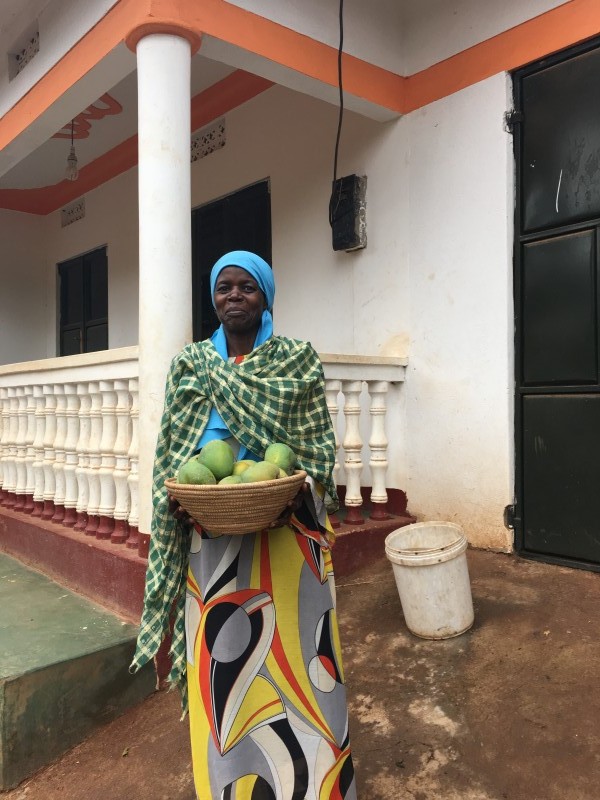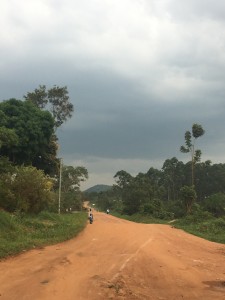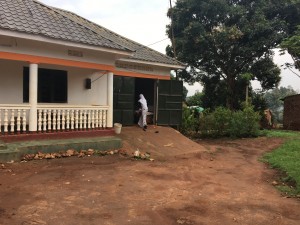In a two-part Stories of Origin from Uganda, Migrant-Rights.org looks at how the recent spate of migration to the GCC is igniting dreams of the East African country's citizens. In this first instalment, we explore the lives of those who have had a taste of the Middle East, those left behind, and those who aspire to go abroad, regardless of the cost.
In the centre of Kampala, between a church, a mosque and busy shopping complexes, is a large parking lot. Magic Parking is more than a parking lot, though. There are grimy tables and chairs scattered between parked cars, moved every now and then to accommodate a new vehicle. Suds from soapy water float off windshields and land on shoulders and heads of patrons, who barely take the time to brush it off.
A fine layer of red dust settles back on the wet surface, leaving streaks.
Old women bussing tables walk around disinterested in the tales of the young; younger women take orders and serve hot coffee and cold drinks. Somewhere in the background, the latest political news is blaring from a television. Everyone agrees there’s not much of a future for youngsters in the country.
“Just take me to Dubai. Leave me in the middle of the road. I will succeed,” Murshid Garwango says, or rather, raps.
Latifa Mahmoud, sitting next to Murshid, shakes her head in amusement. She knows success can’t be guaranteed. She went to Ras Al Khaimah in November 2014, with the help of a ‘friend’. She was promised a job in sales.
“I sold my laptop for 1 million shillings (roughly AED2000 at that point) to pay for visa and tickets to the ‘friend’. I landed there and was taken to Lewa Manpower Agency. An Emirati family came and picked me up from the agency. I was taken to a big house in RAK. Five rooms and three bathrooms downstairs and the same upstairs. There were eight kids and the parents. I worked 5.30 a.m. to midnight, daily. And when they went camping, I worked 6 a.m. to 1 a.m.”
Latifa worked three months before she complained. “They said I had to pay AED10000 to go back. I didn’t have that money. I signed a contract for AED1200 at the agency, but was paid only 800.”
The hard physical labour without proper food or rest took a toll. “I developed chest pain, back pain. And stomach ulcers because I was never given proper food. They didn’t take me to the hospital, even when I offered to pay for medical expenses.”
Unable to bear the physical pain, Latifa went to the agency, to seek help. “They started screaming at me for coming alone. Saying I should come only with the employer and that I will be accused of stealing money. Then finally they took me to the police station. And they also said I can pay and leave. Where was the money? I told the police that even when I gave money for medicines they didn’t get it for me.”
The police ordered the employers to take Latifa to the hospital but did little else to alleviate her problem.
Over Ramadan of 2015, Latifa’s health deteriorated further. She was not allowed to go out, and workload increased. Two of the older children, aged 25 and 23, tried intervening.
“They told their parents that it was not fair to make me work alone in such a big house. That I needed help. That was the only kindness, but nothing changed.”
It was then that she contacted Yasin Kakande who was working in UAE as a journalist, and a Migrant-Rights.org contributor.
Yasin spoke to the employers raising the issue of human rights abuse. The employer denied any wrongdoing. However, they did promise Latifa that she would be sent back after Ramadan, provided no one called to complain.
“Ramadan is a very bad month because there’s a lot of work, and we (maids) sleep only for 2-3 hours. But even after Ramadan, they did not send me back.” When there was no sign of relief, Latifa stopped eating in protest. “I had to protest. Yasin had to speak to them again, then they agreed. I had to pay for my own ticket.”
“Just take me to Dubai. Leave me in the middle of the road. I will succeed.”
Recruitment network of ‘uncles’ and ‘friends’
That ‘friend’ who helped Latifa with her visa? “I never met him. He sent visa and that’s all.”
Finally, in 2016, Latifa left UAE, with no money and a plethora of health issues that still plague her. During this difficult employment stint, she met Saidiyat, sister of Murshid Garwango.
“My sister went to Tanzania where she met a Ugandan uncle there who helped her go to UAE. He wanted me to go, but we decided my sister would go so I can finish my education.”
‘Uncle,’ like ‘friend,’ are terms used loosely to describe fellow countrymen. They were promised that she would be working in the home of a family known to uncle. They managed to rustle up $800 and Saidiyat left in Dec 2014.
Garwango has a particular Ugandan inflexion. The almost musical tones interjected with a ‘what’ – which serves both as a pause and as a check-in on the conversation. When he says, “the first week she said it was all ok. Then things kept getting… what? … worse”, as if in a chorus, everyone at the table echoed his last word.
Latifa met Saidiyat when she went out of the house to dispose of garbage. “I used to bring her some money. But her situation is bad.”
She has a phone hidden away, and communication is sporadic. “My sister is very very sick, she has been beaten. Every time we speak to her she cries. She complains.”
Uncle is no longer helpful, says Garwango.
The happy, successful anecdotes are mere myths, that each new emigrant hopes to experience for real. At the moment, the stories that come out are all dire.
Yet, Murshid Garwango is certain his journey would be different, even if his landing were to be bumpy. “Just take me to Dubai. Leave me in the middle of the road… what?... I will succeed,” he repeats
Dusk falls and we sit there sipping teas. What if they didn’t go to the Gulf, and worked here?
“The politicians are too corrupt.”
“There are no employment opportunities.”
“It’s better to go to a foreign country.”
A few days later, in a different setting, in a bar inside a church complex, an elite club of intellectuals gather for their monthly meeting. There are lawyers and consultants, engineers and journalists, sipping their tonic water, their chatter segueing between world affairs and local politics.
We discuss the spate of reports on abuse of Ugandan workers, men and women, in the Gulf. The educated gentlemen think it’s the media exaggerating again – after all, the Gulf is where dreams come true.
“It’s good for Ugandans to go abroad and work,” they all say.
Then the familiar refrain.
“There’s so much corruption.”
“Inflation and salaries don’t keep up.”
“No wonder our young want to go abroad to secure their future.”
Uganda struggles with an 80% un- and underemployment rate.
The breadwinners and their patriarchs
A couple of days after the Magic Parking meeting, we hit the road to Luweero, about 60 km from Kampala. The roads are caked with red soil and lined with fertile agricultural fields. Every surface has a coat of burnt orange dust, even the cattle reflect the colour.
With a large loaf of bread and a bag of sugar, we are ready to visit Mohamed Lukwago, a village elder. We pick up his daughter ZamZam Lukwago from the novelty store she runs in the town square, a 15-minute drive away from her home.
She returned after a 3-year stint in Kuwait, and with the money saved, opened this little store and bought a plot of land to build her own house. To actually build a house, ZamZam – who has a 1-year-old daughter and is separated from her husband – has to go abroad again.
Right before we reach our destination, we run into Abdul Wahab Kityo who is herding his cows back to the cattle shed adjoining his home. “He has a lot of experience,” ZamZam grins.
Kityo has 17 children. One wife is in Cairo and one of his daughters, Joweriya Nakawoya, works in Dubai. She went to Dubai with a family ‘friend’ who had come to Uganda on a holiday.
“We paid about 1 million shilling as commission to the friend. They said she would be paid $200 but she sent back only $100 twice. They don’t allow her to have a phone, and she talks from the employer’s phone. She complained about the food. They give her the baby’s leftovers,” Kityo deadpans in dialect.
The family friend is no longer of help. And Joweriya herself doesn’t want to come back. “We are still paying off the debts, and she wants to save. She still has hopes.”
A group of children return home from school. Batiga Tahiah changes out of her school uniform and sidles up to her father. He is keen on sending Batiga abroad. She is 20 but looks years younger. “Going there is better than going to school,” he says, and she eagerly nods her consensus.
She does enjoy school and history is her favourite subject, she speaks softly, almost in whispers. “I have a passport. I am willing to go to help my family. Build a nice house.”
Kityo is not aware of the ban on Ugandan women travelling to the Gulf. “I only know Saudi Arabia is not safe. So will not send my daughters there. Other places are ok. The problem is finding a correct agent, to trust someone. Even those who are educated don’t get professional jobs, they still go as housemaids.”
He looks expectantly. “Would you be able to find her a job?”
ZamZam takes leave quickly; it’s raining, and we still have to meet her family before heading back to Kampala for the night.
Complaining is no use. She gets paid $200, every month. So she will finish her contract and come back in August.”
Brick by brick
As the car drives into the front yard, you can see the remains of a disused room in the foreground, and a larger, newer concrete structure in the middle of the plot of land.
The before and after exhibits. Three of Mohamed’s daughters have worked in the Gulf, and the family owes their affluence to them. The front room has large sofas, and dozens of coir mattresses rolled up in one corner of the room adjacent to it. There’s a kitchen and wash facilities somewhere beyond these rooms.
On one wall is a large fading poster of Moammar Gadaffi, who is something of an African hero.
The patriarch is seated on the sofa, his wife on a cushion by his feet. The daughter and grandchildren are busy with chores.
He has several children; “We don’t count, we have as many as Allah destines.” Later the interlocutor says there may be children from other wives or mistresses, and it was a sensitive matter.
So the discussion revolves around three daughters. Sophia who works in Saudi Arabia, Madina in Dubai and ZamZam who has returned from Kuwait.
Sophia went abroad in 2013 and hasn’t saved much as she has to pay for her children’s education.
Zamzam’s is the success story. A trained nurse, she went to Kuwait in 2012 to take care of a premature baby. She worked for three years, providing round the clock care for the child, and came back well remunerated.
“I am still in touch with the family, they were very good to me. I could save a lot.”
In February 2016, Madina travelled to Dubai. They paid an agent 1.7 million shillings, which they have already recovered with her earnings. Now she saves, the father says with pride.
The mother, who sat in silence until then, joins the conversation. “We see the news (of workers’ abuse), and we are worried. Madina calls every Friday. She is not mistreated, but there’s lots of work. Complaining is no use. She gets paid $200, every month. So she will finish her contract and come back in August.”
Zamzam would have been no more than 18 or 19 when she first went to Kuwait. What drove her to make that move?
“The decision was made by the family, and if an opportunity came, the girls would go. As Muslims, we know God destined (rizik),” Mohammed, the retired driver, says.
As one other migrant told us, for many Ugandans the Arab is as good as Islam itself, so going to Saudi Arabia is seen as a privilege.
His wife extends an overflowing basket of mangoes as a gift, and suddenly the bread and sugar seem a sorry offering.
As we leave their home, the father calls out from his seat, “ If there is ever an opportunity, a good safe one, tell us. For our daughters.”
The story is eerily similar across continents and cultures. In impoverished families, a woman willing to migrate is seen as a ticket out of poverty. From villages in Indonesia and Sri Lanka, Nepal and Bangladesh, Uganda and Cameroon, women both young and old make risky journeys with little orientation, to help achieve dreams of the fathers and sons, brothers and husbands. As was the case with Saidiyat, Zamzam, Joweriya and in months to come, Batiga.
NEXT: In the land of friends and uncles, everyone is an agent
